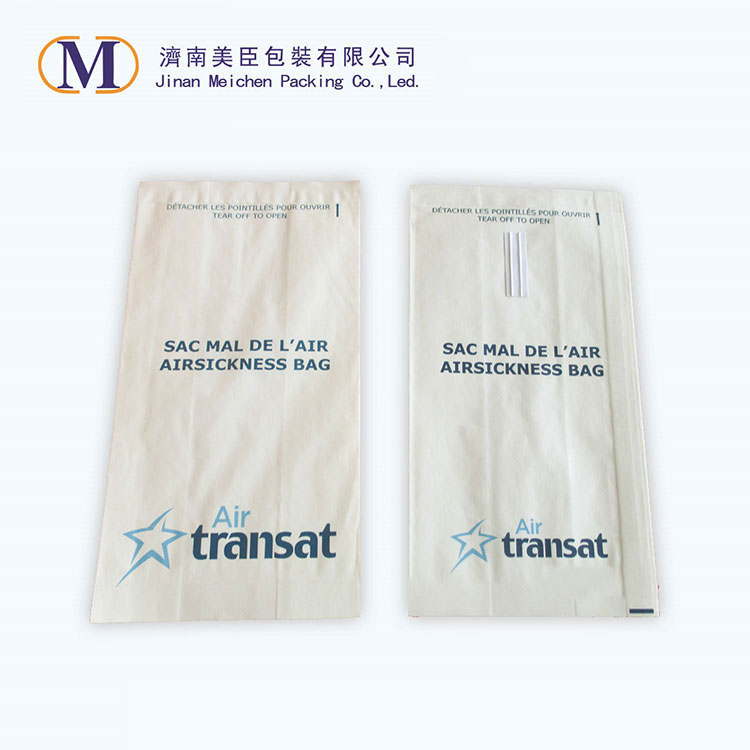Why Airlines Should Prioritize Sustainable Flat Bottom Airsickness Bags
2025-01-02
The aviation industry is under increasing pressure to reduce its environmental footprint. While much of the focus is on fuel efficiency and carbon offsets, smaller items like airsickness bags also offer opportunities for sustainability. Here’s why airlines should make the switch to sustainable flat bottom airsickness bags.
Environmental Impact of Traditional Bags
Most traditional airsickness bags are made from materials that take decades to decompose. With millions of passengers flying each year, the cumulative waste from discarded bags is significant. Transitioning to biodegradable or compostable options can greatly reduce this impact.
Aligning with Passenger Expectations
Today’s travelers are more environmentally conscious than ever. Offering eco-friendly airsickness bags demonstrates a commitment to sustainability and resonates with passengers who value green practices.
Cost-Effective Solutions
While biodegradable materials may initially seem expensive, advances in manufacturing are bringing costs down. Additionally, airlines can offset expenses by marketing their eco-friendly initiatives, enhancing brand loyalty and reputation.
Supporting Circular Economy
Sustainable bags can be integrated into a circular economy framework. For instance, compostable bags could be collected and processed alongside organic waste, creating a closed-loop system that benefits the environment.
Challenges to Overcome
Transitioning to sustainable airsickness bags isn’t without hurdles. Airlines must:
1. Test Durability: Ensure new materials can handle the same demands as traditional bags.
2. Educate Passengers: Highlight the benefits of the new bags through in-flight announcements or branding.
3. Collaborate with Suppliers: Work closely with manufacturers to develop and scale eco-friendly solutions.
A Greener Future
As airlines strive to meet global sustainability goals, even small changes like adopting eco-friendly airsickness bags can make a difference. These initiatives not only help the planet but also position airlines as leaders in responsible travel.
In conclusion, prioritizing sustainable flat bottom airsickness bags is a simple yet impactful step towards a greener aviation industry. It’s time for airlines to embrace this change and inspire others to follow suit.



